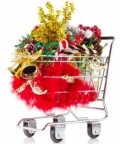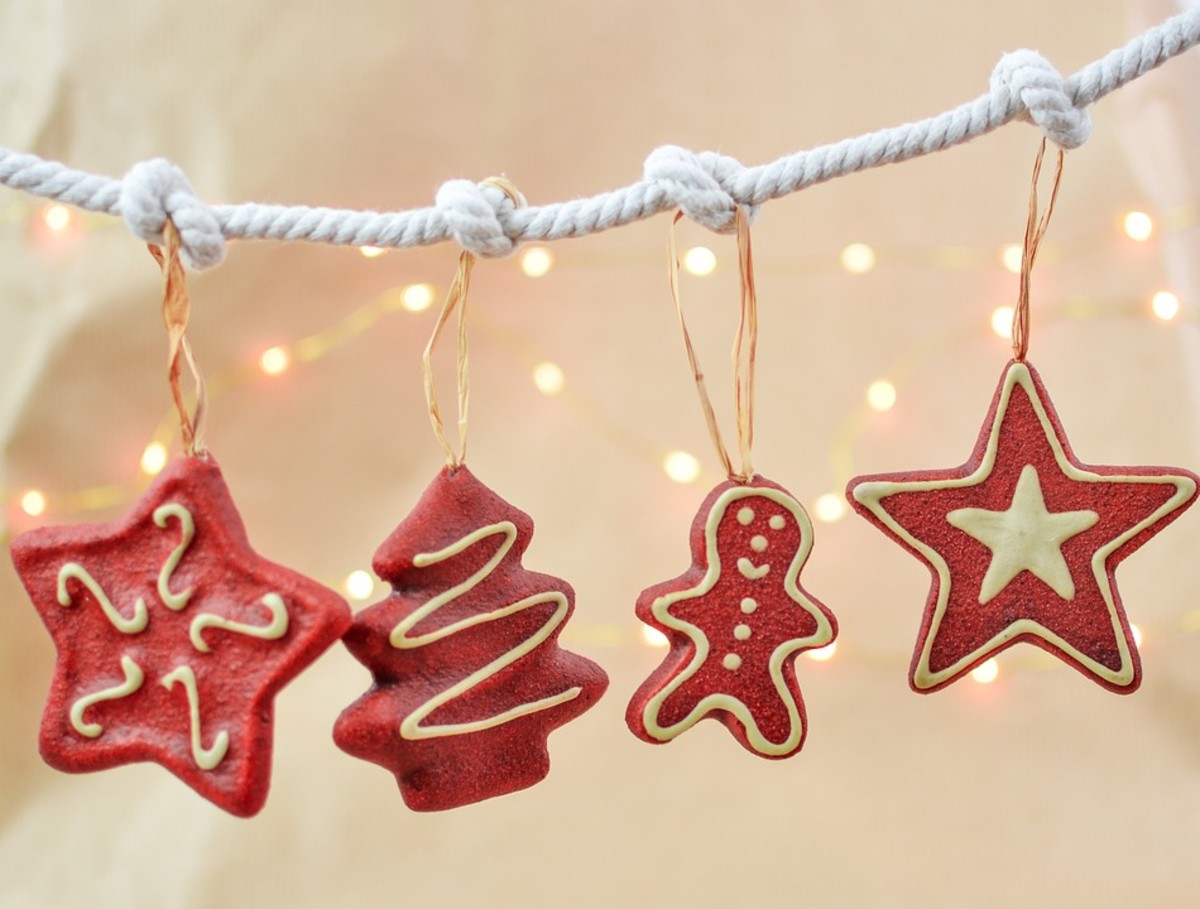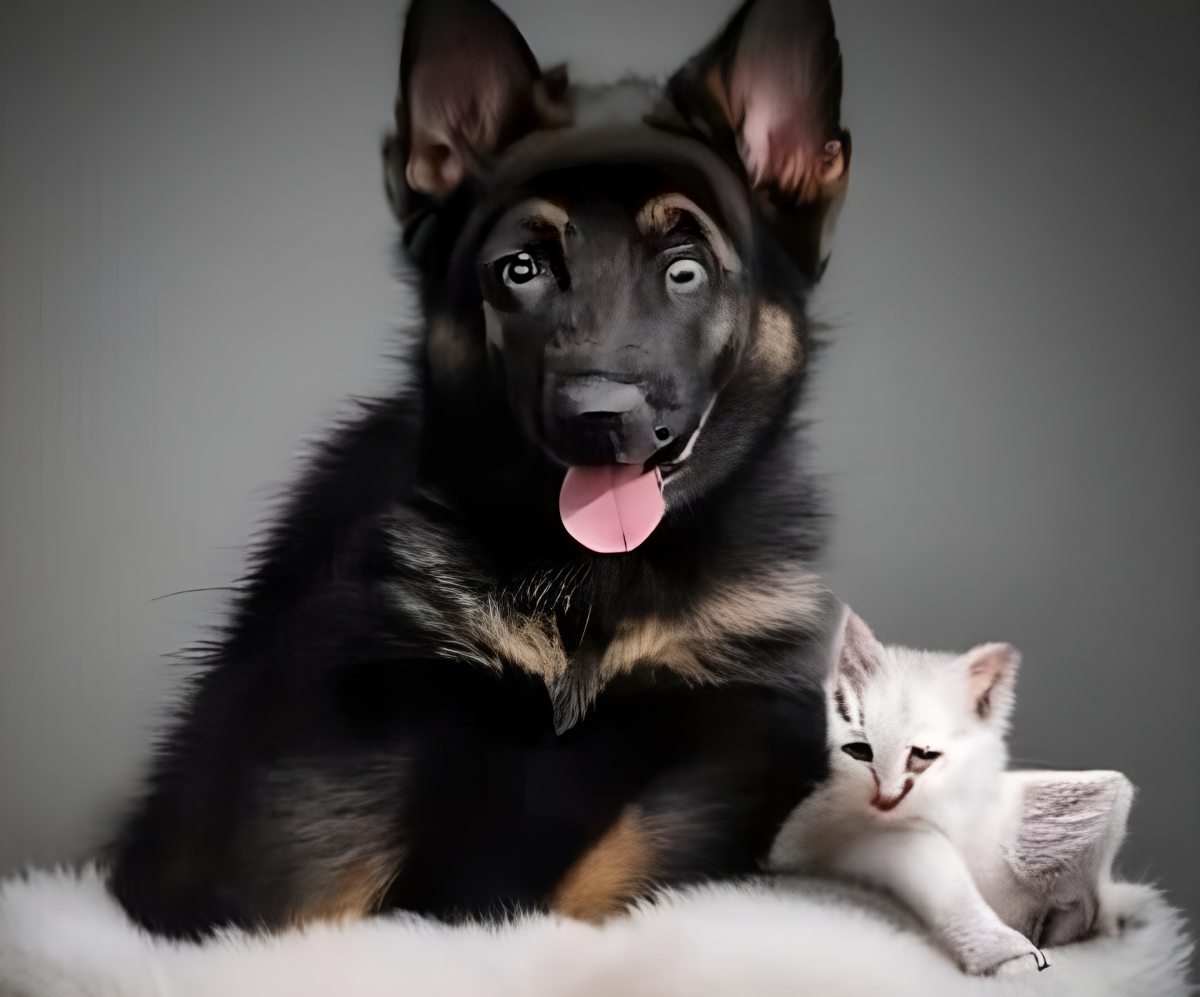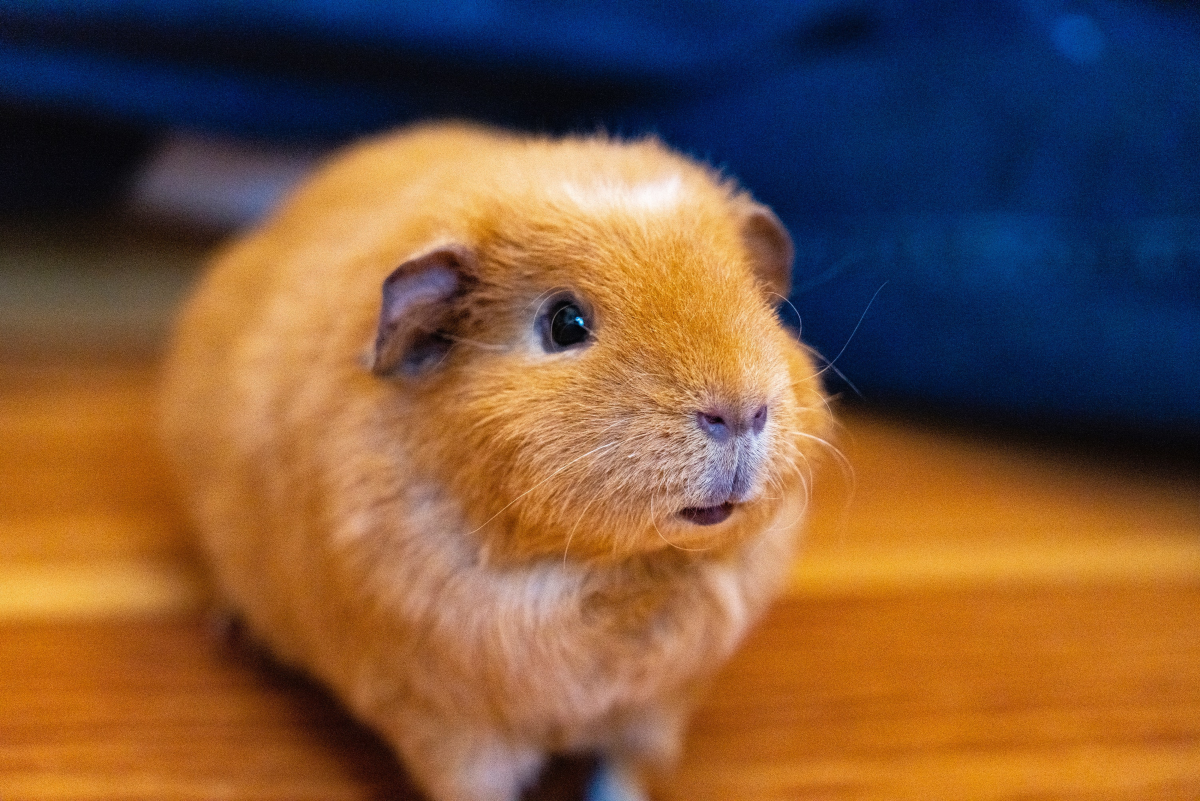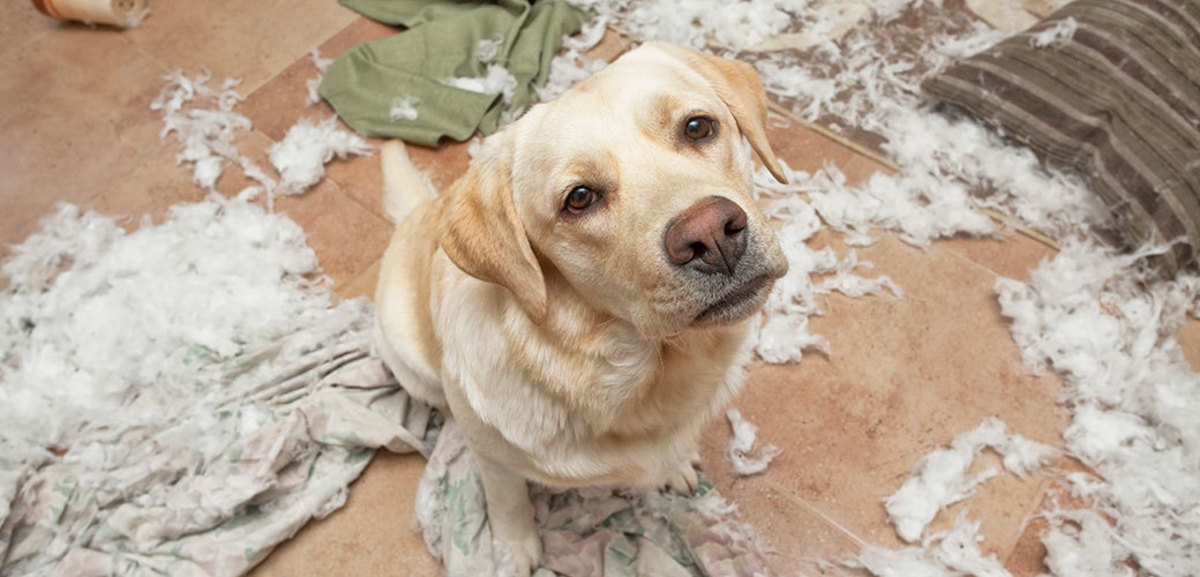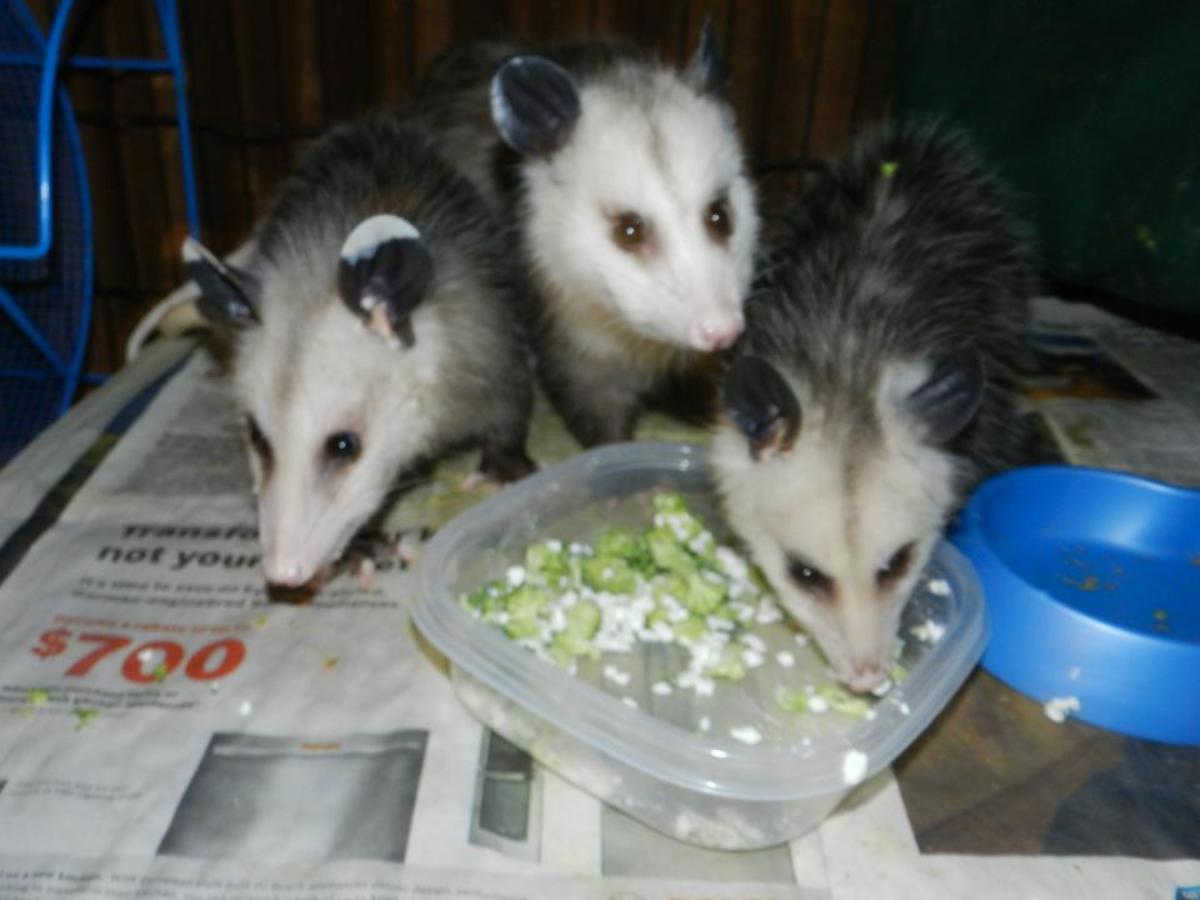Keep Your Pets Safe During the Holiday Season
Pet Safety
During the holiday season, you generally add decorations that your pet normally wouldn't see throughout the year, so you want to make sure that he knows the rules. You don't want to come home to your tree on the floor and broken ornaments, and you definitely don't want to find your dog or cat sick from eating something he shouldn't have.
So in order to keep your pet safe this holiday, check out some of the below tips. These simple tips and suggestions could possibly save you a trip to the emergency vet, the heartache from a sick pet, and money from having to replace any broken Christmas decorations.
It's really a win-win situation. Nothing gets broke, no one gets sick, and you don't have to spend any extra money.
Tips for Keeping Your Pet Safe from Holiday Hazards
Christmas Tree
- If you prefer live Christmas trees, you want to make sure that you
keep the water stand covered. When the pine sap mixes with the water, a
poisonous concoction is created, and you don't want your pet drinking
it.
- Also remember that some live trees may contain fertilizers which can harbor bacteria, as can stagnant tree water. If you purchase tree water, check the labels for preservatives, and only purchase non-toxic products.
- Do not put aspirin in the tree water. Some people believe aspirin keeps the tree more vigorous, but if your pet drinks it, the aspirin can be very dangerous.
- Secure the tree to the wall or ceiling using sturdy fishing line in attempts to prevent the tree from falling over if your pet tries to jump on it or walks too close.
- Pine needles can puncture a pet's intestines if ingested, so make sure to vacuum loose needles from fresh trees.
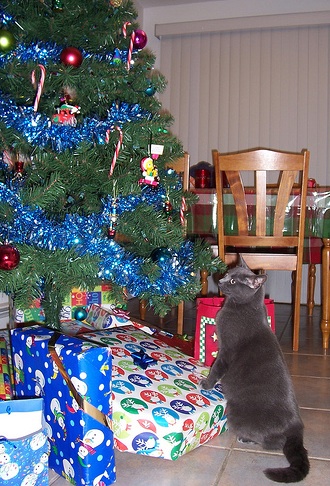
Ornaments
- Keep any ornaments and hooks off the ground. Keep an eye around the tree as ornaments and hooks are bound to fall at some point during the season. You want to pick them up before your pet suffers injury from stepping on the hook or trying to ingest part of the ornament or the hook.
- Decorate the bottom layer of the tree with non-breakable ornaments, such as plastic or wooden ornaments.
- Do not hang ornaments made of dried food in your pet's reach.
Christmas Lights
- Make sure that indoor lights do not hang too low so that pets cannot get tangled in them, and remember to turn off the lights when you're not home.
- Tape down or cover cords to prevent your pet from chewing on them and potentially getting shocked, burned, or seriously hurt.
Christmas Decorations and Plants
- Keep candles out of your pet's reach. If you have a bird, keep it in its cage when you're lighting candles or have candles lit.
- Poinsettias, mistletoe berries, and other plants and flowers that are popular during the holiday season are poisonous, so you want to keep them out of reach of your pets.
- Snow globes often contain antifreeze, which is poisonous around pets, so try to keep them out of reach to prevent them from falling and breaking.
- If you use tinsel, use it with caution, as if ingested it can block the intestines. It's a good idea to hang tinsel high and out of reach of pets. Also vacuum regularly in case any falls.
- Avoid putting decorations that can be toxic to your pet in his reach. Snow spray, snow flock, styrofoam, and tinsel can all be potentially dangerous.
Holiday Food
- Keep treats and candies out of your pet's reach. Try not to put food items under the tree, even if they are wrapped. Your pet will be able to sniff it out.
Holiday Plants that are Toxic to Pets
Because many people like to add live plants to their home during the holiday season, it's recommended that you know which are potentially toxic to your pets. You do not want your pet to ingest a toxic holiday plant. Keep the following plants out of reach of your pets.
Although, the entire plant may not be toxic to your pet, it's just not a good idea to let him chew on the leave if the stem is toxic, or eat the leave when the flower is toxic. Just keep the entire plant away from your pet.
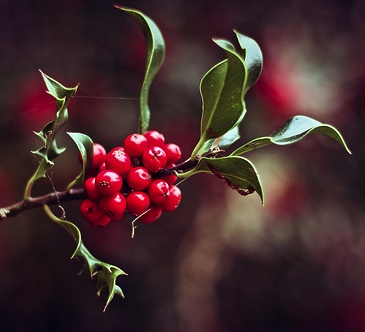
- Amaryllis
- Bittersweet (berries)
- Crown-of-thorns
- Daffodil
- Dieffenbachia
- Ficus (fig)
- Holly (stiff leaves and red berries)
- Hyacinth
- Jerusalem cherry (entire plant)
- Lilies
- Mistletoe (berries, leaves, and stem)
- Philodendron
- Poinsettia *
- Pyracantha (berries)
- Rosary Pea or Jequirity Bean (berries)
- Yew
Also be careful of pine, spruce, balsam, and fir Christmas trees, as they are potentially dangerous to your pet's health, especially if a large amount is ingested.
It is always best to ere on the side of caution, as you do not know what holiday plant may cause a reaction with your pet. Some plants may only be mildly toxic whereas others severe. When using holiday plants to decorate your home, it's just a good idea to keep the plants out of reach of your pets.
You pet may suffer mild to severe symptoms such as cardiac arrhythmia, tremors, convulsions, gastrointestinal signs. GI irritation, vomiting, diarrhea, nausea, mouth and stomach irritation, and excessive drooling. The symptoms will vary depending on the plant and how much the pet swallowed.
* Poinsettia plants will have a mild irritation when ingested. You may seen signs such as nausea, vomiting, and diarrhea. The sap from the flower may cause skin irritations. In most cases, ingesting just a leave or two should does not result in a major reaction.
Non-Toxic Holiday Plants
Non-toxic plants that you may find popular during the holiday season can include the following:
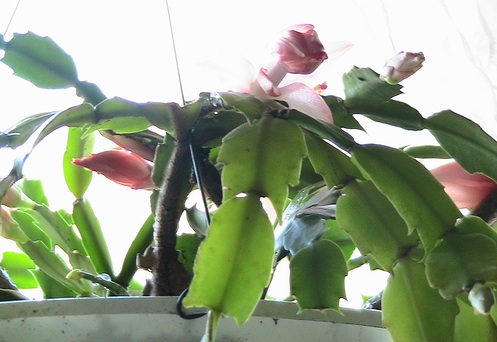
- African violets
- Boston Fern
- Christmas Cactus
- Coleus
- Jade
- Snake plants
- Spider plants
- Wandering Jew
- Wax plant
Just remember that even non-toxic plants can cause coughing, choking, or an upset stomach if ingested.
Disclaimer: Please be aware that the advice in
this article should in no way replace that of a licensed veterinarian. If you
have any concerns, you should consult a veterinarian. For a complete listing of plants that are toxic to your pets, contact your local poison control center, poison control unit of your local hospital, or your veterinarian.



